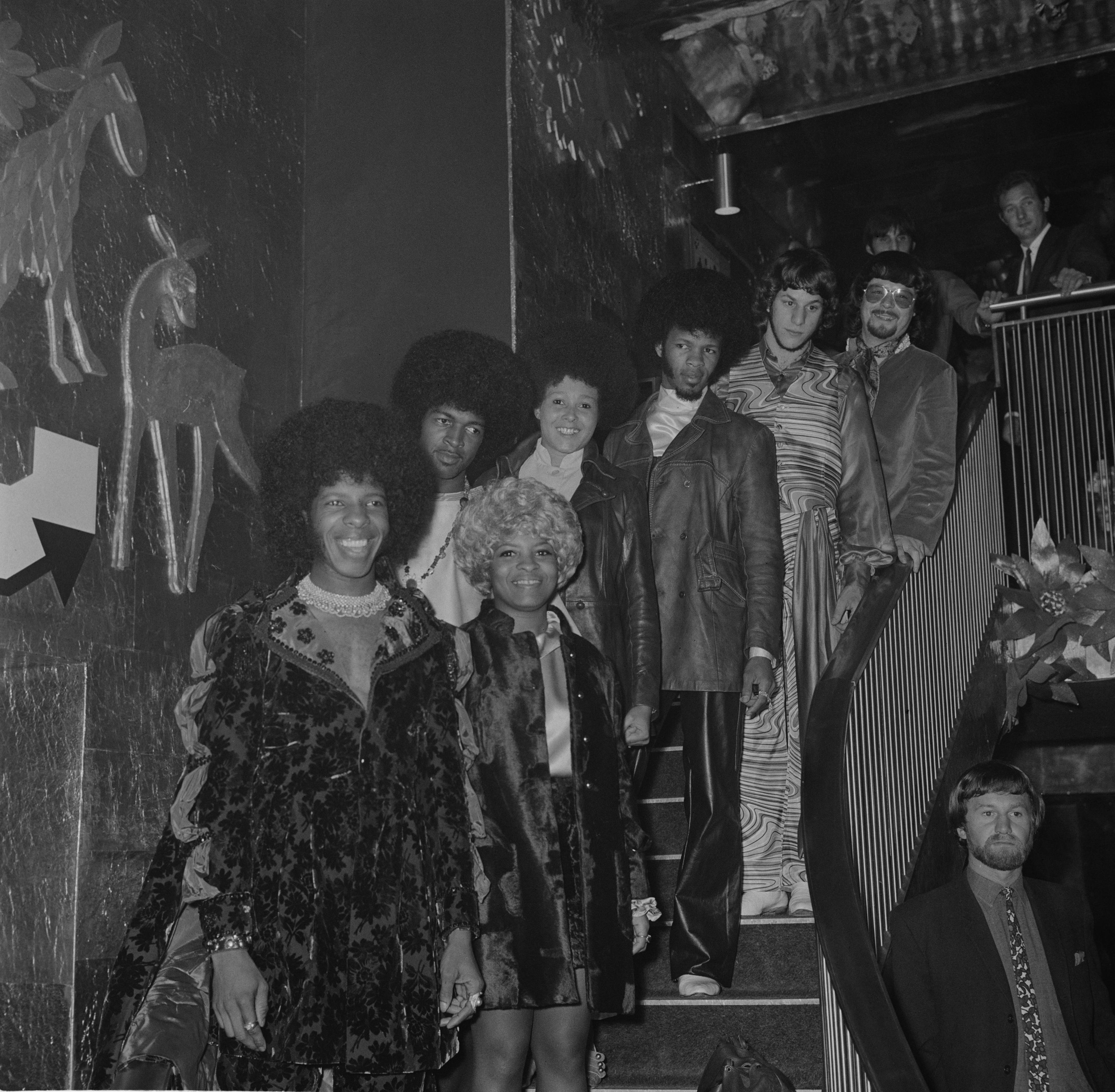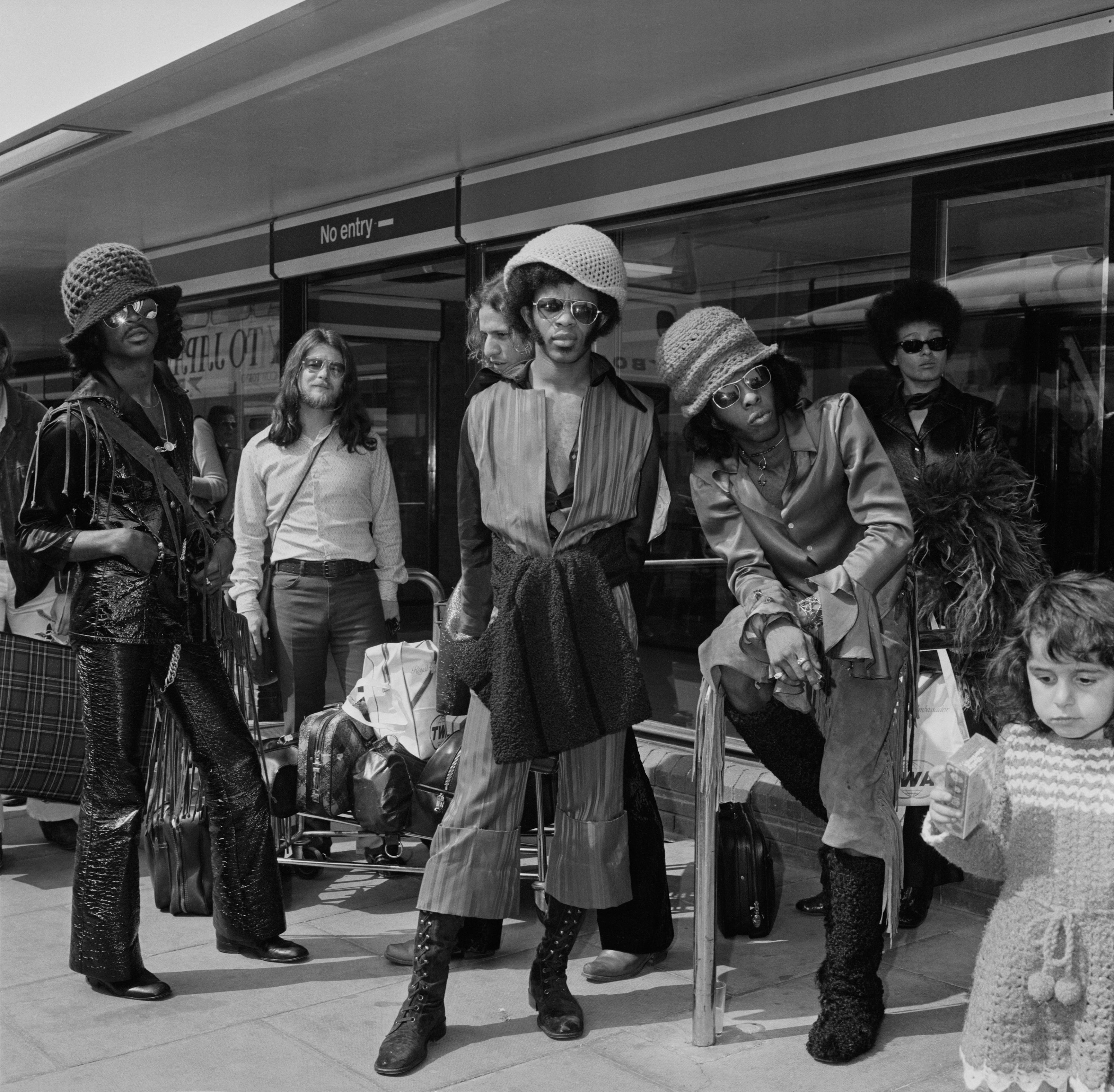Sly Stone
, a onetime San Francisco DJ turned pop and funk music innovator, has died. He was 82.
“It is with profound sadness that we announce the passing of our beloved dad, Sly Stone of
Sly and the Family Stone
,” a statement shared with USA TODAY on June 9 reads. “After a prolonged battle with COPD and other underlying health issues, Sly passed away peacefully, surrounded by his three children, his closest friend, and his extended family.
“While we mourn his absence, we take solace in knowing that his extraordinary musical legacy will continue to resonate and inspire for generations to come.”
Start the day smarter. Get all the news you need in your inbox each morning.
After huge chart-topping success in the 1960s and 1970s, Stone had become an enigmatic and largely reclusive figure plagued by homelessness and health issues. He also had endured financial problems amid management disputes, at one point
winning a $5 million judgment
for unpaid royalties that was later overturned. In one dire period, reports indicated that the Woodstock icon was living in a van in Los Angeles.
But despite such misfortunes, the music created by the Texas-born California transplant and his trendsetting multiracial, multigendered Bay Area band, the Family Stone, had never stopped being a touchstone for generations of musicians.
Among Stone’s
oft-covered but never matched hits
are “I Want to Take You Higher,” “Hot Fun in the Summertime,” “Stand!” and the infectious and phonetically titled funk anthem, “Thank You (Falettinme Be Mice Elf Agin).”
The statement from Stone’s family hailed him as “a monumental figure, a groundbreaking innovator and a true pioneer who redefined the landscape of pop, funk and rock music,” one whose songs “have left an indelible mark on the world, and his influence remains undeniable.”
Stone’s family noted that the musician had recently completed a screenplay for his life story and concluded: “We extend our deepest gratitude for the outpouring of love and prayers during this difficult time. We wish peace and harmony to all who were touched by Sly’s life and his iconic music.”
Stone was born Sylvester Stewart on March 14, 1943, in Denton, Texas, but grew up in the northern San Francisco suburb of Vallejo, where he and his siblings quickly mastered a variety of instruments, notably guitar and keyboards.
In the mid-’60s, just as the San Francisco music scene was exploding with global impact, Stone served both as a record producer and disc jockey at KSOL, whose listeners immediately took to his deep, resonant voice as he shared an incessant stream of hits being generated from area groups.
In 1966, spurred on by the local revolution that was birthing bands such as Jefferson Airplane, Santana and the Grateful Dead, Stone decided to combine his fledgling band with one led by his brother Freddie, forming Sly and the Family Stone. Hits followed in short order, starting with 1968’s “Dance to the Music” and “Everyday People,” both of which celebrated the sheer and simple joy created when music brings the masses together.
But Stone’s compositions also frequently plumbed deep depths, with lyrics that pierced as ably as they moved. In “Family Affair,” Stone’s sensitive growl intones: “One child grows up to be/ Somebody that just loves to learn/ And another child grows up to be/ Somebody you’d just love to burn/ Mom loves the both of them/ You see, it’s in the blood/ Both kids are good to mom/ Blood’s thicker than the mud.”

By 1969, Stone and his group were among the most well-known bands in the nation, and performed a memorable set at that year’s Woodstock festival in upstate New York, a hallmark of which was the band’s audience-lifting rendition of “I Want to Take You Higher.”
The band also performed that year at the
Summer of Soul
concert in Harlem, an event memorialized in the documentary of the same name by Ahmir “Questlove” Thompson. (Questlove went on to direct “Sly Lives! (aka The Burden of Black Genius),” a 2025 Hulu documentary focused on Stone.
While Stone’s band was among the earliest of the ’60s groups to feature a mix of genders and races (including founding member and trumpet player Cynthia Robinson and founding drummer Greg Errico), Stone was the leader and visionary who steered the band’s direction.
Often cloaked in elaborate stage clothing, his massive Afro glowing, Stone’s looks and music were an indisputable harbinger of the coming funk revolution that would take the foundational innovations of James Brown and propel it to an otherworldly showboating level as best exemplified by the huge success of ’70s legends such as George Clinton and his Parliament-Funkadelic band.
But the rocket-ship ride to fame would quickly come crashing back to earth. By 1971, with the band addled by drug use and internal strife, Sly and the Family Stone would increasingly lose tour bookings and fail to produce music that matched the songs of just a few years prior.
While Stone spent the ’70s working on new music, often on his own since he played numerous instruments, success proved elusive. In 1983, he was arrested in Florida on drug charges. More trouble and misfortune found its way to Stone’s doorstep in the coming years, although in 1993 he did make a public appearance during
the band’s induction
into the Rock & Roll Hall of Fame.

A decade later, in 2005, Stone, by now almost a legendary ghost, was spotted at a Los Angeles club after driving his sister Vet, who was in a Family Stone tribute band, to her gig on his motorcycle. The next year, Stone shocked thrilled attendees at the
Grammy Awards by taking the stage
, resplendent in a huge blond mohawk, as his band roared through a number of hits during the show’s salute to the seminal group.
In 2009, documentarian Willem Alkema released
“Coming Back for More,”
a look at Stone’s life and career. The director
told journalists at the time
that Stone was homeless, but the pioneering musician nonetheless made a number of appearances, however brief, at California festivals.
In 2023, Stone
released his autobiography
, the first book released by Questlove’s imprint, which aptly took its title from his song, “Thank You (Falettinme Be Mice Elf Agin).” The book
received mixed reviews
, as its subject seemed a bit at a loss to recall that epic golden period so long ago that created those unforgettable songs.
But one excerpt captures the delightful lyricism that he brought to his hits, and serves as a reminder that genius never really fades.
Of many others who over the years tried to tell Stone’s story, he wrote: “They’re trying to set the record straight. But a record’s not straight, especially when you’re not. It’s a circle with a spiral inside it. Every time a story is told, it’s a test of memory and motive. … It isn’t evil but it isn’t good. It’s the name of the game but a shame just the same.”
Contributing: KiMi Robinson
This article originally appeared on USA TODAY:
Funk pioneer Sly Stone, leader of Sly and the Family Stone, dies at 82

